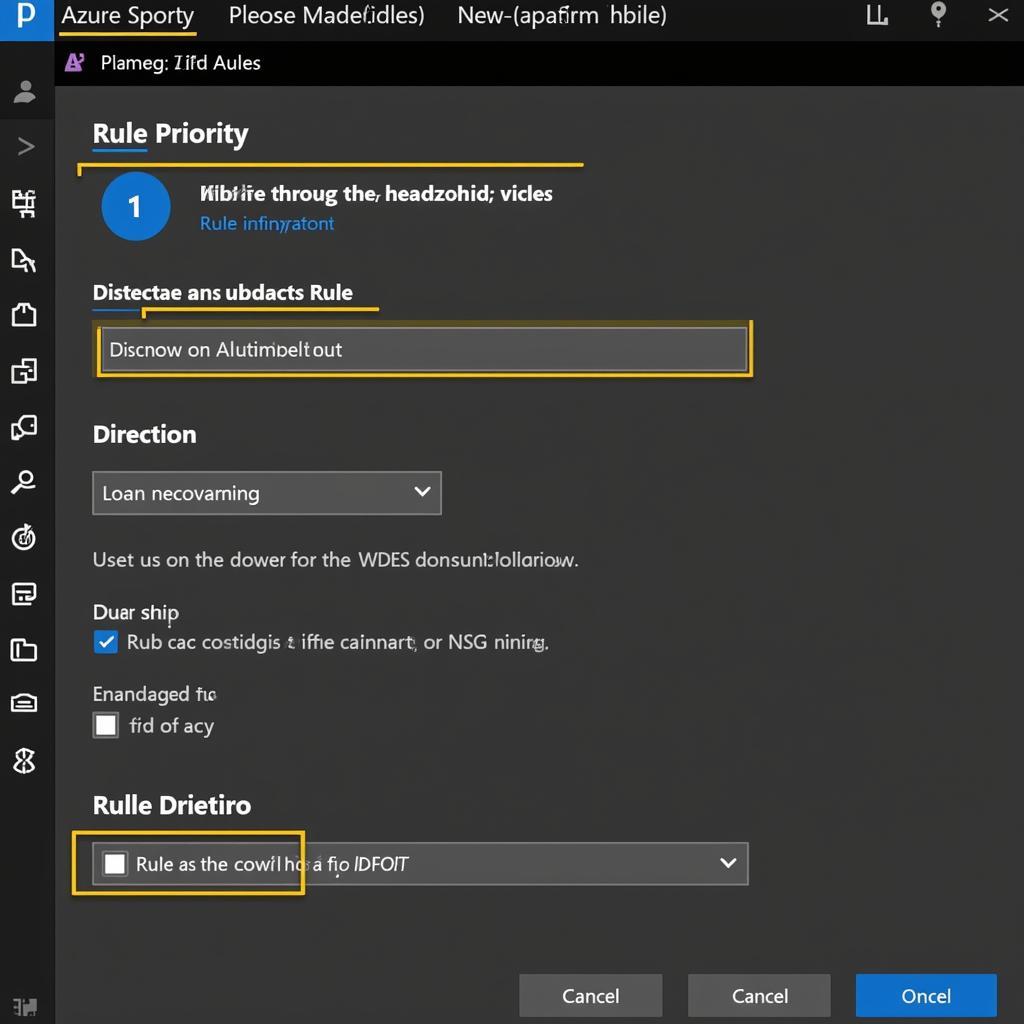Navigating the world of cloud computing can be complex, especially when it comes to security. For businesses operating within the ASEAN region leveraging Microsoft Azure, understanding Azure Network Security Groups (NSGs) is crucial for fortifying your cloud infrastructure. This guide delves into the core aspects of ASEAN Azure NSGs, equipping you with the knowledge to enhance your cloud security posture.
What are Azure Network Security Groups (NSGs)?
Imagine NSGs as the guardians of your Azure resources. These virtual firewalls filter network traffic at the subnet or network interface level, allowing or denying inbound and outbound connections based on configurable rules. This granular control empowers you to define specific access policies for your applications and data.
Why are NSGs Important for ASEAN Businesses?
The ASEAN digital economy is booming, and with it comes the increasing sophistication of cyber threats. Implementing Azure NSGs offers several key benefits for businesses in the region:
- Enhanced Security Posture: NSGs provide an additional layer of security, bolstering your defense against unauthorized access and data breaches.
- Data Sovereignty Compliance: With data residency regulations becoming increasingly stringent across ASEAN, NSGs help maintain compliance by controlling data flow within specific geographic boundaries.
- Simplified Network Management: By segmenting your network and applying specific security rules, NSGs simplify network management and make it easier to diagnose and troubleshoot connectivity issues.
- Cost Optimization: NSGs allow you to optimize costs by limiting traffic to essential services and reducing the attack surface exposed to potential threats.
 Visualizing Azure NSG Rules
Visualizing Azure NSG Rules
Key Components of an Azure NSG
Understanding the core components of NSGs is fundamental to effective implementation:
- Rules: The heart of an NSG, rules dictate which traffic is permitted or denied. Each rule specifies a source, destination, port range, protocol, and action (allow or deny).
- Priority: Rules are processed in priority order, with lower numbers taking precedence. This allows for granular control and the creation of specific exceptions within your overall security policy.
- Direction: Rules can be applied to inbound or outbound traffic, giving you fine-grained control over network flow.
- Default Rules: Azure automatically creates default rules for each NSG. These rules allow communication within the same virtual network but block all inbound traffic from the internet.
Best Practices for Implementing Azure NSGs in ASEAN
To maximize the effectiveness of NSGs, consider these best practices:
- Least Privilege Principle: Grant only the necessary access required for applications and services to function, minimizing the potential attack surface.
- Rule Prioritization: Carefully prioritize your NSG rules to avoid conflicts and ensure intended behavior. Regularly review and update rules to reflect changes in your environment.
- Logging and Monitoring: Enable NSG flow logs to monitor traffic patterns, identify anomalies, and troubleshoot connectivity issues.
- Automation and Infrastructure as Code: Leverage automation tools and Infrastructure as Code (IaC) practices to streamline NSG deployment, management, and ensure consistency across your environment.
ASEAN Azure NSG: FAQs
Q: Can I apply multiple NSGs to a single resource?
A: While you can associate multiple NSGs with a subnet, only one NSG can be applied directly to a network interface. Effective rule management across multiple NSGs is crucial to avoid conflicts.
Q: What happens if there are conflicting NSG rules?
A: Azure processes NSG rules in priority order. If two rules conflict, the rule with the lower priority number takes precedence.
Q: Are there any limitations to the number of NSG rules I can create?
A: Yes, Azure imposes limits on the number of NSG rules per subscription and per NSG.
Need Help with Azure NSG Implementation?
Securing your cloud infrastructure is paramount. For expert guidance on implementing Azure NSGs tailored to your specific business needs in the ASEAN region, contact us at:
Phone: 0369020373
Email: aseanmediadirectory@gmail.com
Address: Thôn Ngọc Liễn, Hiệp Hòa, Bắc Giang, Việt Nam.
Our dedicated team is available 24/7 to assist you.

